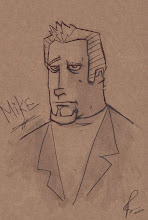As my material of interest, I’ve chosen the movie “Fight Club”. Let me start by explaining why I chose this movie. It is one of my favorite films, and in my opinion covers so much of what we’ve been talking about in class. Aside from a great cast consisting of Edward Norton, Brad Pitt, and Helena Bonham Carter, the film was a masterpiece. In this essay I will try to describe some scenes from Fight Club and compare them with some of the material we went over in class.
The moment of consumption marks one of the processes by which we are formed as a person. How we come to be the kinds of people we are, how we are produces as subjects, how we identify with descriptions of ourselves as male or female, black or white, young or old. (Barker 3rd edition, page 11 Subjectivity and identity)
The identity of the main character-Jack- was one of the main issues in this film. How he saw himself, and later on how he wanted to be someone he wasn’t, ultimately created his other self- Tyler Durden. In many ways Jack was trapped in his prefect yet miserable cage called life. Always living by the book in search of the right way of life, as apposed to the life he needed.
According to Barker, structuralism speaks of signifying practices that generate meaning as an outcome of structures or predictable regularities that lie outside of any given person. In case of Jack, one of the causes of his life predicament was structuralism. Ruled by the book in hopes of success, and the correct meaning of his life structure Jack found himself looking for an end rather than the exit from his miserable life.
Jack hoped for death, thinking that it could end his dull existence. Instead he found himself meeting the most interesting “self serving friend” he ever had. Throughout the film, the concept of “I” comes up, where Jack begins to talk of himself as a person constructed from variety of emotions. “I am Jacks rage…”
According to Derrida, language generated meaning through difference rather than by correspondence with fixed transcendental meanings or reference to the “real”. In Fight Club, the meaning of “real” changes so drastically, causing confusion to the main character Jack. He himself gets lost somewhere in the middle of reality and what he thought was the real world. Illusions were made for safety.
We fall victim to commercial and media world, which ultimately dictates our lives and our personalities. What are we? To which Tyler answered “consumers, the byproduct of lifestyles of perfection.” “Things you own end up owning you”. In the end we reach for some kind of perfection, but end up getting what we’re told. According to Jacks alter ego Tyler, “Self improvement is masturbation of self destruction.”
This film covered topics related to sex, gender, sexism, man power, drug use, violence and other issues that we face daily. But most importantly in bring them all together in a colorful harmony of movie magic.
Works sited
Book
Barker. Cultural Studies.
(Barker 3rd edition, page 11 Subjectivity and identity)
Derrida. (Barker Cultural Studies)
Web.
IMDB.com
Movie
Fight Club. 15 October 1999 (USA)
Monday, October 20, 2008
Subscribe to:
Comments (Atom)




